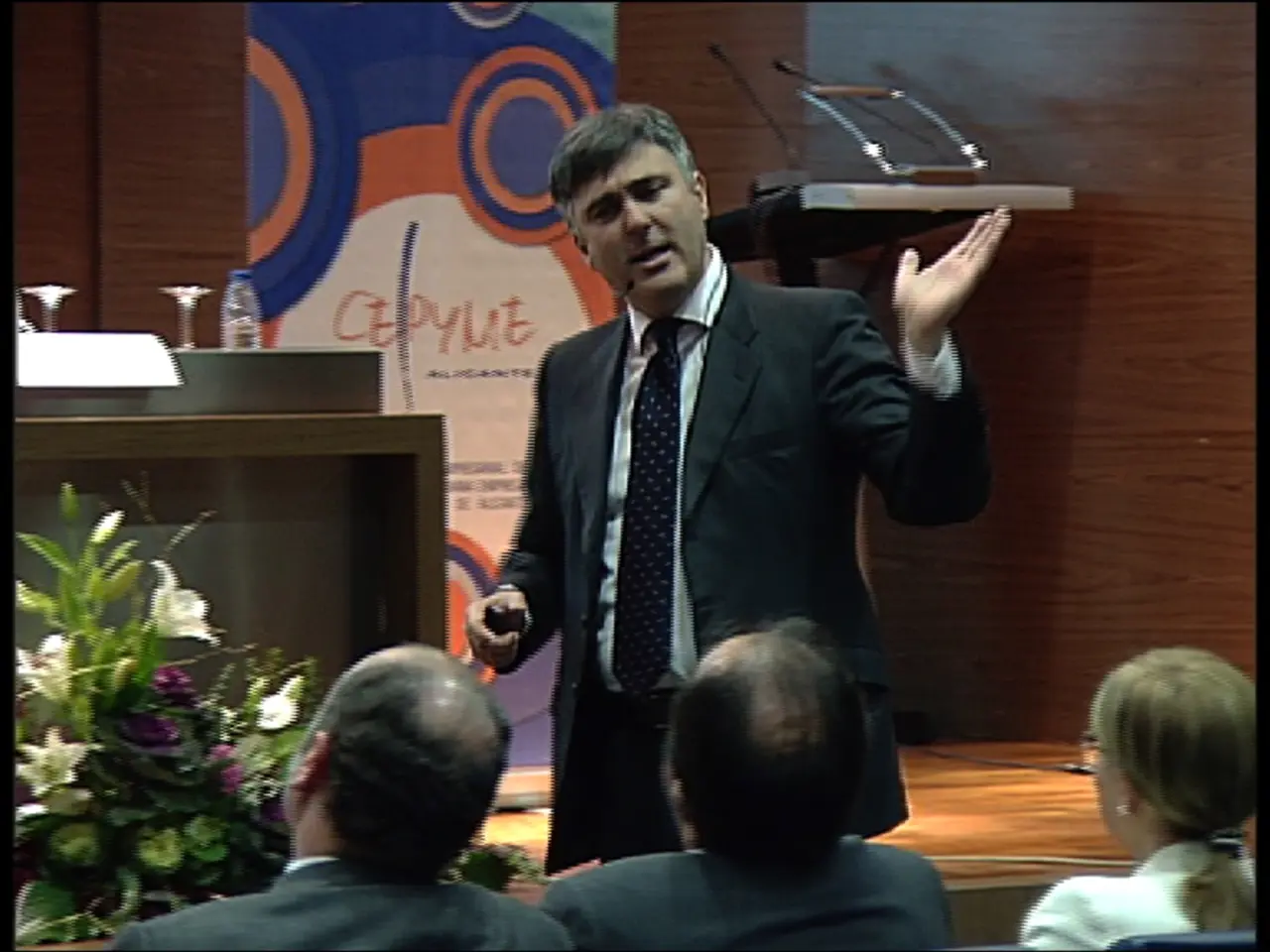German lawmakers pass measures limiting family reunification immigration policy
Title: Germany Halts Family Reunification for Certain Refugees Amid Immigration Crackdown
Subtitle: Published on our website | Twitter Facebook Flipboard Linkedin Messenger Reddit Telegram VK Bluesky Threads Whatsapp
The German parliament (Bundestag) has decided to temporarily halt family reunions for refugees with subsidiary protection status. This move is part of Chancellor Friedrich Merz's efforts to tighten immigration controls.
German lawmakers voted to postpone family reunions for those falling short of full asylum status, as part of a broader push to tackle immigration. This suspension applies to individuals that have been granted subsidiary protection, a status given to people allowed to stay due to the danger it poses for them to return home, although they are not officially recognized as refugees.
As of the end of March, over 388,000 individuals, primarily Syrians, held subsidiary protection status in Germany. The legislation revokes the 2018 rules that permitted up to 1,000 close relatives per month to join these individuals.
Historically, German authorities made case-by-case decisions based on humanitarian considerations, rather than offering an automatic right to family reunification. The new law will remain in effect for a two-year period.
The government anticipates the change will reduce the number of individuals able to come to Germany by around 12,000 each year, and potentially curb a human trafficking business model.
Interior Minister Alexander Dobrindt justified the measure, stressing that Germany's capacity for integration has limits. He noted that people have come to Germany hoping not to receive full refugee recognition, but believing they could bring their families later. The elimination of this incentive aims to reduce the "pull factor."
The Social Democrats (SPD), a member party of Merz's governing coalition, expressed concern about the legislation but ultimately agreed to it as part of a political compromise. SPD party members acknowledge that integration runs more smoothly when families are united, but find temporary limitations and exemptions for hardship cases acceptable.
The law marks the first migration-related legislation passed since Merz took office, reflecting his administration's commitment to stricter immigration policies under mounting public pressure.
Critics argue that family reunification is key for successful refugee integration, as family unity supports emotional well-being and social stability. The suspension may hinder integration efforts and cause emotional distress to separated families, and there has been public concern about the impact of this policy.
Additional Insights:
The suspension of family reunification rights for refugees with subsidiary protection represents a significant departure from previous practices. The policy follows other European countries, such as Austria, that have imposed similar measures in response to social and economic pressures due to migration.
The debate around migration, integration, and assistance to displaced individuals continues, with policymakers focusing on strategic management of resources and planning frameworks to build sustainable resettlement processes while respecting human rights and upholding international humanitarian obligations.
Sources:- [1] "Germany's Family Reunification Suspension: Government’s Case and Criticisms." European Migration Network, 2025.- [2] "Family Reunification Suspension for Refugees in Germany: Implications, Controversy, and Perspectives." Journal of Migration Studies, 2025.- [3] "Austrian Family Reunification Ban and its Impact on Asylum Seekers." Asylum Law Journal, 2025.- [4] "The Psychological, Social, and Economic Effects of Family Separation for Refugees: A Syrian Case Study." Journal of Cultural Diversity and Mental Health, 2025.
- The recent suspension of family reunification for refugees with subsidiary protection in Germany is a part of broader policy-and-legislation aimed at tightening immigration controls, aligning with similar measures implemented in other European countries.
- This policy shift in the realm of politics has sparked a debate about the balance between strategic management of resources and upholding international humanitarian obligations while considering the psychological, social, and economic effects of family separation for refugees.







